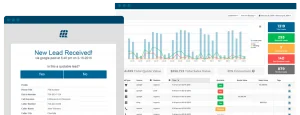Just a few years ago, Google based much of its decision on where to rank a website on how many backlinks it had. The idea was that if a website had a lot of backlinks, it must be important and therefore of value to Google’s users.
But unscrupulous web page designers figured this out and started to artificially create fake backlinks using automated software programs. The result was that Google was leading its users to web pages that actually had very little content and value.
So Google changed its search engine algorithm to give weight to other things such as social approval signals, such as Facebook “Likes”, how many times a website’s link was Tweeted, and others.
So do backlinks still matter to getting your web pages ranked high on Google and other search engines? The answer is, “Yes, as long as the links come from authoritative places”.
Are Backlinks Still Relevant to Your Website? Authoritative Websites
Google considers websites to be authoritative if they are places people generally would go to get answers to questions they might have. That means sites like Wikipedia, Ask.com and About.com are considered by Google and other search engines to be authoritative sites.
So getting links to your page from these sites and other authoritative sites like them — including sites run by education institutions (in other words, sites with the suffix “.edu”) and governmental bodies (sites with the suffix “.gov”) can still improve your page rankings.
How to Get Backlinks from Authoritative Sites
The best way to get these high-value backlinks is for your site itself to be authoritative. In other words, make your website a place web users would go to find answers. Then it’s simply a self-fulfilling prophecy and your page will soar to the top of the Google rankings.
Another way is to plant these backlinks yourself. Go to places authoritative sites and interact with the content, leaving content, posting helpful information, and always remembering to include backlinks to your web pages.




